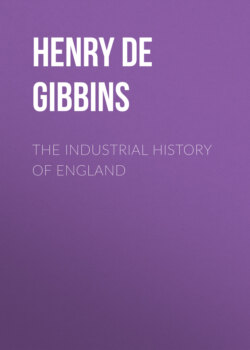Читать книгу The Industrial History of England - Henry de Beltgens Gibbins - Страница 32
На сайте Литреса книга снята с продажи.
§ 2. Foreign Trade. The Crusades
Оглавление—But, on the other hand, the Norman Conquest, which combined the Kingdom of England with the Duchy of Normandy in close political relations, gave abundant opportunities for commerce, both with France and the Continent, and foreign trade certainly received a stimulus from this fact. It was further developed by the Crusades. The most obvious effect of these remarkable expeditions for a visionary success was the opening up of Trade Routes throughout Europe to the shores of the Mediterranean Sea, and to the East in general. They produced also a considerable redistribution of wealth in England itself, for the knights and nobles that set out for the Holy Land often mortgaged their lands and never redeemed them, or they perished and their lands lapsed to the crown, or to some monastery that took the place of a trustee for the absent owner. The growth of towns also, as we saw, is directly attributable to the privileges and freedom secured at this time by supplying money to a crusading lord. As to foreign trade, our chief authority at this time is the old chronicler, Henry of Huntingdon, whose history was published about A.D. 1155. Like most historians, even of the present day, he says very little about so insignificant a matter as trade; but the single sentence which he devotes to it is probably of as great value as any other part of his book. From it we gather that our trade with Germany was extensive, and that we exported lead and tin among the metals; fish and meat and fat cattle (which seems to point to some improvement in our pastoral economy); and, most important of all, fine wool, though at that time the English could not weave it properly for themselves. Our imports, however, are very {34} limited, comprising none of the necessities of life, and few of its luxuries beyond silver and foreign furs. Other imports were fine woven cloths, used for the dresses of the nobility; and, after the Crusades began, of rich Eastern stuffs and spices, which were in great demand, and commanded a high price. So too did iron, which was necessary for agricultural purposes, as Englishmen had not yet discovered their rich stores of this metal, but had to get it from the lands on the Baltic shore. Generally speaking, we may say that our imports consisted of articles of greater intrinsic value and scarcity than our exports, and thus were fewer in number, though of course balancing in total value, as imports and exports always must.
